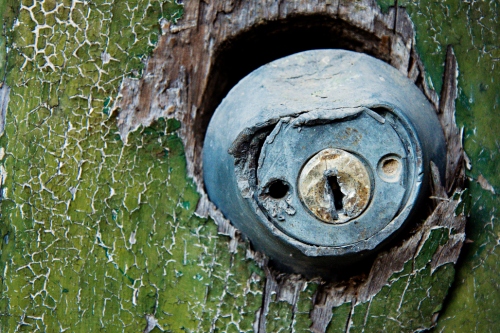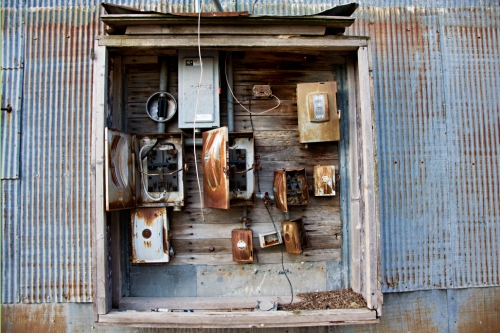Lock
My mama grew up in that house you was lookin’ at. Ain’t much to look at now, but at the time she had a restaurant there on the west side, cooked in the back. She ran that even when she was pregnant with me. Farm food, you know—steak, chicken, pork, taters, corn. She made mean fried okra. Her trick was pepper in the flour, you see.
This town was big then, three, no, four hotels, a couple pool halls, five taverns, and a couple more not-so-official if you know what I mean. Lumber yard over there, and a big general store across the street. All from the railroad. Big business then. Back down that hill was loading for cattle and hogs, and the crops got loaded in over at the elevator back by the paved road. We went to school back up there, but that’s been gone for what, since, oh, late 60s, I imagine.
Saturday night was our night as kids. The street was wider, and folks would park in the center. The traffic went on both sides. Cars lined up all the way from Meg’s place up past where we are now. Me and my brother would just run loose on those nights. Ducking in and out of the parked cars, you know, throwing rocks in the alley, sassing young men who were on dates. Boy stuff.
Hell, we spent more time trying to get out of trouble than we did getting into it.

















